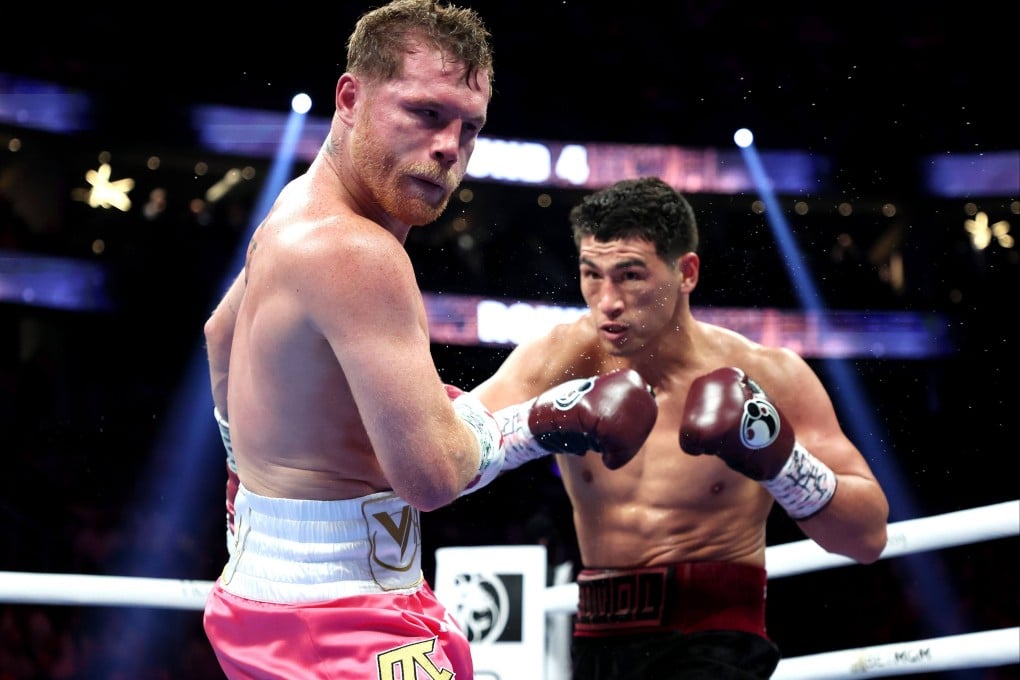Who is Dmitry Bivol? The humble Korean-Russian roots behind boxing’s newest star, whose love of Jackie Chan started it all
- WBA light heavyweight champ became a household name overnight with stunning upset of Saul ‘Canelo’ Alvarez
- The 31-year-old is latest in long line of Korean-Russians to excel in elite sport, with humble beginnings shaping future king

When Dmitry Bivol arrived home triumphantly at St Petersburg airport after shocking boxing’s pound-for-pound No 1 Saul “Canelo” Alvarez this month, he was given a hero’s welcome by a crowd of fans – and a rendition of the cult Russian song, Gruppa Krovi.
Meaning “blood type”, the lyrical choice was a nod to Bivol’s heritage. Gruppa Krovi is written by Viktor Tsoi, a Russian rock legend who, like Bivol, is Korean-Russian.
Koreans first arrived in large numbers in the Russian Empire about 150 years ago, and became a significant ethnic group in the former USSR.
Numbering around 500,000, Korean-Russians have also excelled in sport – chief among them the 31-year-old WBA light heavyweight champion.
He is not alone, though. Kazakhstan’s boxing great Gennady Golovkin, former undisputed junior-welterweight king Kostya Tszyu, and legendary Soviet gymnast Nellie Kim all have Korean-Russian roots.
The son of two farmers, Bivol’s Korean mother and Moldovan father met during the Soviet era as students and settled in Kyrgyzstan, a melting pot of many ethnicities.
He was born in 1990 in the small town of Tokmok, where his parents grew onions and wheat on the land they rented. “My childhood was spent helping them in the fields,” Bivol said.